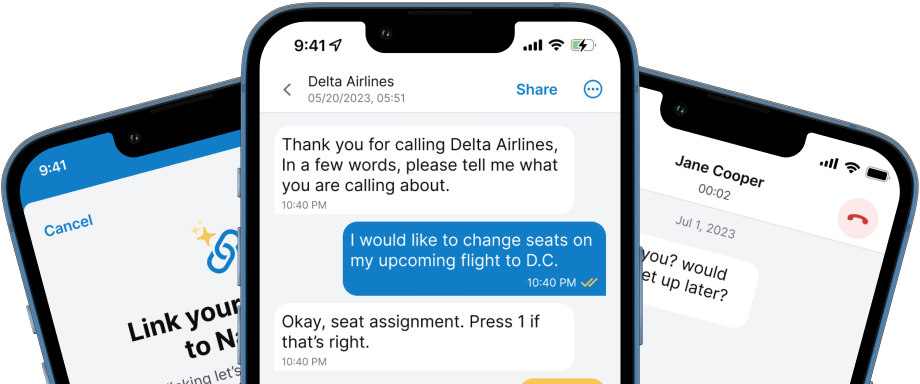Is “Hearing Impaired” an offensive term?
If you are not sure about the term “Hearing Impaired”, if it's offensive or not, we made an article to help you out. Click here to learn more!
.jpg)
As languages, perceptions, and social norms evolve, it is becoming increasingly difficult for everyday people to figure out how to refer to people with disabilities. In this discussion, we would like to explain why the terms “hearing impaired” and “hearing impairment” are not suitable for use anymore.
When we focus on people who are prelingually deaf and hard of hearing, the word “impaired” is not an accurate description. A person becomes stigmatized because we reduce that person to someone who is subordinate to the majority and suggests that they need to be ‘fixed’.
It is important to understand that many people do not consider being deaf or having hearing loss as a disability.
Why Is “Hearing Impaired” Considered Rude And Offensive?

We often think it is more polite to say “hearing impaired” than “deaf”, when it's really not the case today. We think this softens the blow of their harsh reality when really they live fulfilling, rich, meaningful lives as a part of the Deaf and hard of hearing community.
It is important to note that deaf and hard of hearing people usually know that the person isn’t trying to be offensive or rude, they simply haven’t been educated. We know you are well-meaning! There is a lack of mainstream awareness regarding appropriate language and terminology which we hope this article helps with!
This term “hearing impaired” may have been once viewed as a politically correct version of the word “deaf”, but it is no longer acceptable. It is outdated and demeaning. It establishes the standard as “hearing”, and anything different is impaired or substandard.
Not only that, but it does not account for cultural identity. Many with hearing loss do consider themselves as a part of the Deaf and hard of hearing community. Culturally Deaf people do not like the term "hearing impaired", perceiving it as negative and clinical.
Negative Connotations Tied With “Hearing Impaired”
Using the phrase “hearing impaired” or “hearing impairment” is problematic and implies that someone with hearing loss is impaired or less able, rather than differently-abled. It suggests that they are weakened or damaged. Many disagree with the term “hearing impaired” because it is rooted in a deficiency mindset, pointing out what they cannot do.
If you go to the Merriam-Webster online dictionary and type in the word “impaired”, the resulting definition states: “Being in an imperfect or weakened state or condition; diminished in function or ability.” Deaf and hard of hearing people would disagree with this definition.
The World Federation of the Deaf has taken the stance that “hearing impaired” is no longer an acceptable term. The National Association of the Deaf is on record stating that “‘Hearing-impaired’ was a well-meaning term that is not accepted or used by many deaf and hard of hearing people.”
Origins of the term dumb
The term ‘dumb’ has several origins. In Gothic (dumbs) dumb referred to a person’s inability to speak, while in its Dutch (dom) and German (dumm) roots it referred to a lack of intelligence (i.e., stupid).
Deaf people used to be labeled as “deaf and dumb” and/or “deaf mute”, meaning while deaf, they did not have the ability to speak. This is a misconception as many deaf people have the ability to speak or to communicate, to differing degrees. They have functioning vocal cords just like hearing people.
It is inappropriate to use the above terms today even if it was once widely used in the 18th and 19th centuries.
People with speech and hearing disabilities are capable of expressing themselves in writing, through sign language, and in other ways. They are most certainly not “silent”! Additionally, a person who does not use speech may be able to hear.
Hearing Impaired Legality Tidbits
One interesting fact is that journalists are taught to avoid using the terms “hearing impaired” or “partial” or “partially” in reference to deafness or hearing loss unless people use those terms for themselves.
Many states have actually begun to amend this particular terminology written in their laws. In 2017, Utah became the first U.S. state to change all hearing impaired references in their state laws. New Hampshire and New York followed suit.
What Is a Proper Way To Address a Deaf or Hard of Hearing Person

If you are unsure which term they prefer or have doubts, you can always ask the person. They will share with you their preference regarding the terms “hard of hearing”, “deaf”, or “Deaf”. Your family, co-workers, or friends with hearing loss would certainly appreciate this!
Be sensitive when using the word “impairment” to describe the nature of a disability, or in this case, hearing loss. Again, it is strongly recommended that you avoid using the term “hearing impaired” when discussing or referring to the Deaf community.
Stay tuned for upcoming articles where we explore further terminology that is used in the Deaf and Hard of Hearing community!
Frequently Asked Questions
What should you call a deaf person?
The short answer: deaf.
Deaf and hard of hearing are the two most widely accepted terms for someone with hearing loss because they're considered to be more positive than the term "hearing impaired" or "hearing disabled", which implies a deficit or that something is wrong that makes a person less than whole. These terms are considered offensive and should not be used.
What’s the difference between deaf and Deaf?
The ‘uppercase D’ Deaf describes people who identify as culturally Deaf and actively engage with the Deaf community. Most commonly, people who identify as Deaf are often born deaf and sometimes have other family members who are deaf. However, there are many people who may become part of the Deaf community later in life.
The ‘lowercase d’ deaf refers to the condition of hearing loss. People who identify as deaf with a lowercase ‘d’ don’t necessarily have a strong connection to the Deaf community and may communicate more frequently with speech. This can be the case for individuals who grew up in hearing households and had little to no exposure to the Deaf community.
Do All Deaf People Read Lips?
This is a common misconception. Although some individuals can read lips, even the best speech reader only catches about 25% -30 % of what is said.
Why is The Term Hearing Impaired Offensive?
Words and labels matter and can have a profound effect on people. Some terms can suggest inferiority simply because they are deaf or hard of hearing. Show your respect, appreciation and inclusive approach for deaf and hard of hearing people by refusing to use those outdated and offensive terms, and when in doubt, ask!





